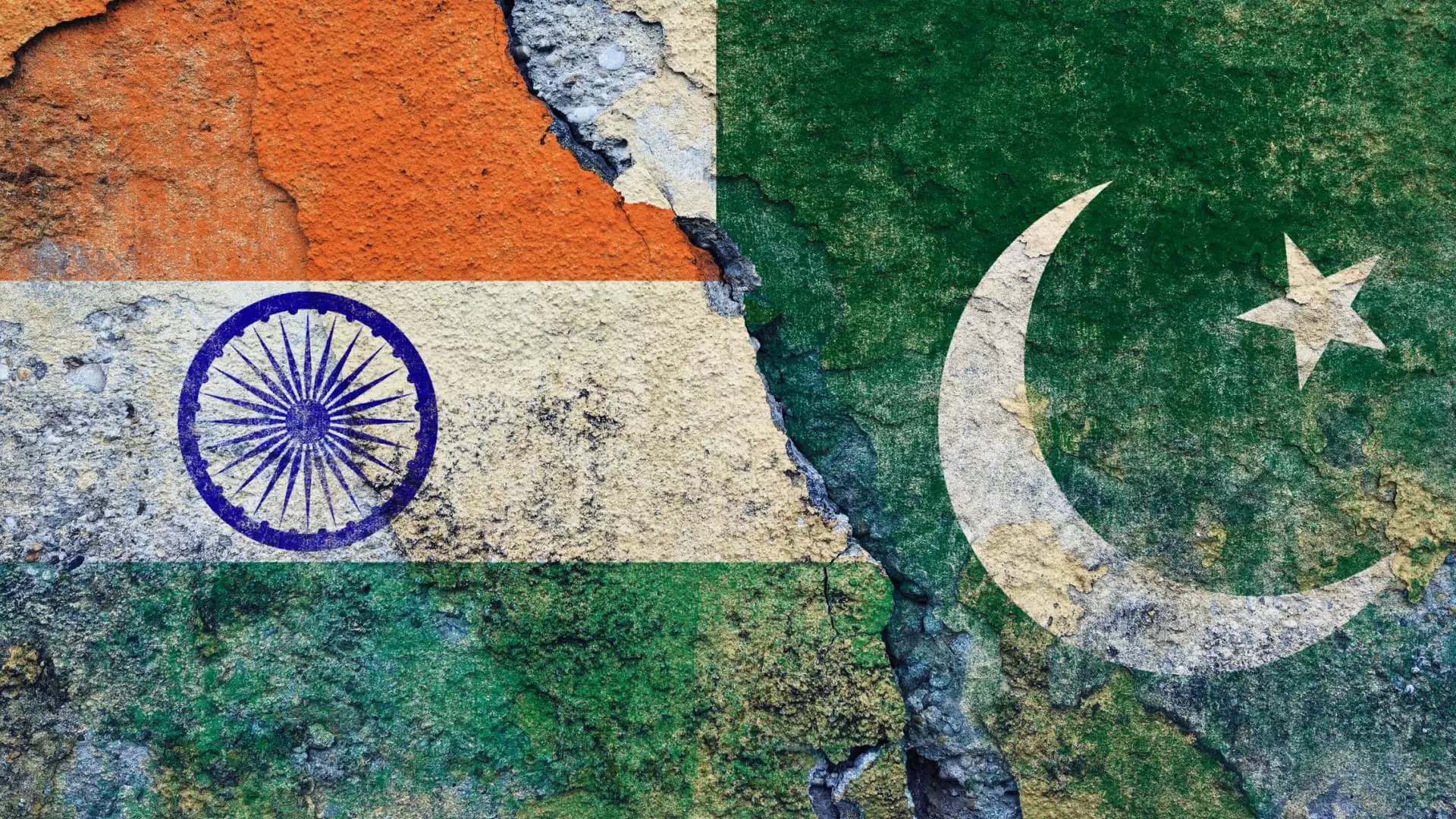When we witness the complex interplay of international diplomacy, few situations are as fraught with tension as the relations between India and Pakistan. The recent military escalations that drew the eyes of the world were not merely the errant fireworks of independence disputes; they were moments threatening to erupt into larger confrontations, involving nuclear powers. British Foreign Minister David Lammy’s comment that Britain and the U.S. played pivotal roles in negotiating a ceasefire paints a somewhat rosy picture, yet it obscures the ugly realities simmering beneath the surface. While anyone can celebrate a moment of peace, it is imperative to scrutinize what this calm actually signifies in the context of ongoing systemic issues and historical grievances.
The latest outbreak of violence culminated following a tragic event in Kashmir, a region perpetually caught in a geopolitical tug-of-war, where every missile fired is imbued with the weight of festering animosities and historical context. While the signed ceasefire offers a temporary respite, we must consider the fragility of this situation. Diplomats and analysts warn that what might seem like a step towards reconciliation could actually be a façade, masking deeper rifts that could explode at any moment. History teaches us that peace agreements often resemble an unstable house of cards—one wrong move, and the entire structure comes crashing down.
Confidence-Building or Confidence-Breaking?
In the realm of peace negotiations, “confidence-building measures” often emerge as a buzzword cloaked in euphemism. It is both important and troubling to assess whether these measures are genuinely designed to foster dialogue or are merely a superficial balm applied to a festering wound. Lammy’s assertion of collaboration with the U.S. might resonate well in the halls of power, but this sentiment lacks grounding in the realpolitik realities confronting the region. For decades, India and Pakistan’s failure to communicate substantively has stoked the fires of hatred and mistrust. Without sincere engagement—rather than mere diplomatic niceties—the very foundation of any enduring peace remains suspect.
The chilling mention of Pakistan’s potential water supply disruption due to India’s suspension of the Indus Water Treaty raises yet another layer of complexity. Water, a life source, has become an instrument of contention, reminding us that environmental concerns often become entangled in political machinations. Such realities highlight the oft-ignored fact: the consequences of poor diplomatic strategies extend far beyond realm of political theater and can manifest in harsh human suffering. It is vacuous for any representative from the U.K. to urge compliance with treaty obligations without addressing the legitimacy of these threats and their devastating implications for ordinary citizens.
The Global Theater: Actors and Audiences
As the narrative unfolds, it’s imperative to critique the role of global powers in this theater of conflict. Lammy’s remarks regarding U.S. involvement imply a push for a third-party dialogue, an idea which holds appeal in its neutrality yet remains virtually untested. The question lingers: Why does the international community continue to broker peace in regions without lending their voices to address the underlying injustices? The blatant sidelining of local sentiments in favor of imposed negotiations is a strategy fraught with peril, undermining the authenticity of the peace process. Additionally, the ominous shadow of Russia’s reluctance to engage sincerely in Ukraine serves as a reminder that endlessly playing diplomatic chess can ultimately divert focus from the real grievances at play.
The historical reluctance of Putin to meaningfully engage highlights a perilous lesson: when powerful nations fail to take accountability for their roles in global conflicts, the results can be nothing short of disastrous. The hypocrisy of seeking peace while harboring vested interests creates an environment where conflict appears to be an enduring state—always on the verge of eruption. When leaders like Lammy ask, “At what point do we say to Putin enough is enough?” the irony is palpable. It raises an uncomfortable truth that policymakers must face head-on: sustainability in international relations means addressing the inherent deficiencies in the processes that tie nations together, not merely glossing over them with ephemeral agreements.
Through these critical lenses, it is clear that while diplomatic efforts deserve recognition, they must be matched by genuine commitment to justice and equity in a world hungry for lasting peace. As we examine the developments between India and Pakistan, one must remain acutely aware that without addressing the core issues, we may very well bear witness to yet another fragile ceasefire ready to collapse.


Leave a Reply